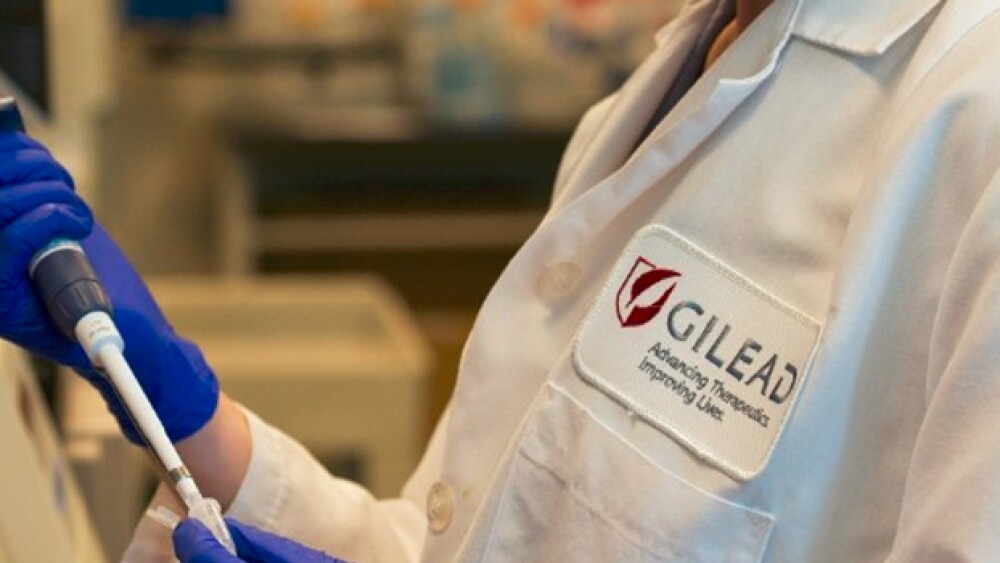Gilead Sciences and its partner Galapagos NV announced results from its Phase II TORTUGA clinical trial of filgotinib, a selective JAK1 inhibitor, in adults with moderately to severely active ankylosing spondylitis (AS).
Gilead Sciences and its partner Galapagos NV announced results from its Phase II TORTUGA clinical trial of filgotinib, a selective JAK1 inhibitor, in adults with moderately to severely active ankylosing spondylitis (AS).
Ankylosing spondylitis is a systemic, chronic, and progressive type of arthritis that typically affects the spine and sacroiliac (SI) joints. It can lead to spinal fusion, causing permanent disability.
The TORTUGA clinical trial is a multi-center, randomized, double-blind, placebo-controlled, Phase II trial conducted in Belgium, Bulgaria, Czech Republic, Estonia, Poland, Spain and Ukraine. It involved 116 patients randomized one-to-one to receive filgotinib 200 mg or placebo once daily for 12 weeks.
The trial met its primary efficacy endpoint, achieving significantly greater improvements in AS Disease Activity Score (ASDAS) at Week 12.
“People with ankylosing spondylitis face serious pain and disability, and, too often, their disease does not respond adequately to existing therapies,” said John McHutchison, Gilead’s chief scientific officer, Head of Research and Development, in a statement. “These data are encouraging, suggesting filgotinib has the potential to play an important role in addressing this medical need.”
Gilead acquired the rights to filgotinib in 2015 after AbbVie abandoned it, according to BioWorld. Gilead paid $725 million with up to $1.35 billion more in various milestone payments. Gilead paid Galapagos $300 million up front and another $425 million in Galapagos shares. Under the deal with Galapagos, the Belgium-based Galapagos is also eligible for tiered royalties that begin at 20 percent in addition to an option to co-promote the drug in Germany, France, the UK, Italy and Spain, as well in the Benelux territory, which is Belgium, the Netherlands and Luxembourg.
Galapagos handled 20 percent of the development costs of filgotinib. AbbVie originally inked a deal with Galapagos to develop the drug in 2012. AbbVie decided to develop its own ABT-494, another JAK1 inhibitor.
In late May, Gilead and Galapagos announced positive data from its Phase II EQUATOR trial of filgotinib in psoriatic arthritis. It was evaluated in 131 patients with moderate to severe psoriatic arthritis, hitting its primary endpoint, an improvement in the signs and symptoms of the disease at Week 16. The assessment of improvement was by a 20 percent improvement score (ACR20) as assessed by the American College of Rheumatology.
Patients receiving the drug had an ACR20 response of 80 percent compared to a 33 percent response for patients receiving placebo. The ACR50 and ACR70 results at Week 16 were also significantly higher for patients on filgotinib. It was noted that Pfizer’s Xeljanz, which has been approved for the same indication, had an ARC20 of only 50 percent.
At the same time, an independent Data Monitoring Committee (DMC) recommended that the filgotinib Phase IIb/III SELECTION trial in ulcerative colitis progress to Phase III.
Although filgotinib is promising, it will have to compete with AbbVie’s mega-blockbuster Humira for most of these indications and Novartis’ Cosentyx. Also in the autoimmune arena are Eli Lilly’s Taltz, Valeant (now called Bausch Health)’s Siliq, Sanofi’s Dupixent and Johnson & Johnson’s guselkumab.
“We are excited to see that filgotinib showed strong activity across a wide range of parameters relevant for ankylosing spondylitis and was well tolerated in TORTUGA, which reinforces previous findings about the activity and tolerability profile of filgotinib in multiple inflammatory conditions,” stated Walid Abi-Saab, Galapagos’ chief medical officer.





